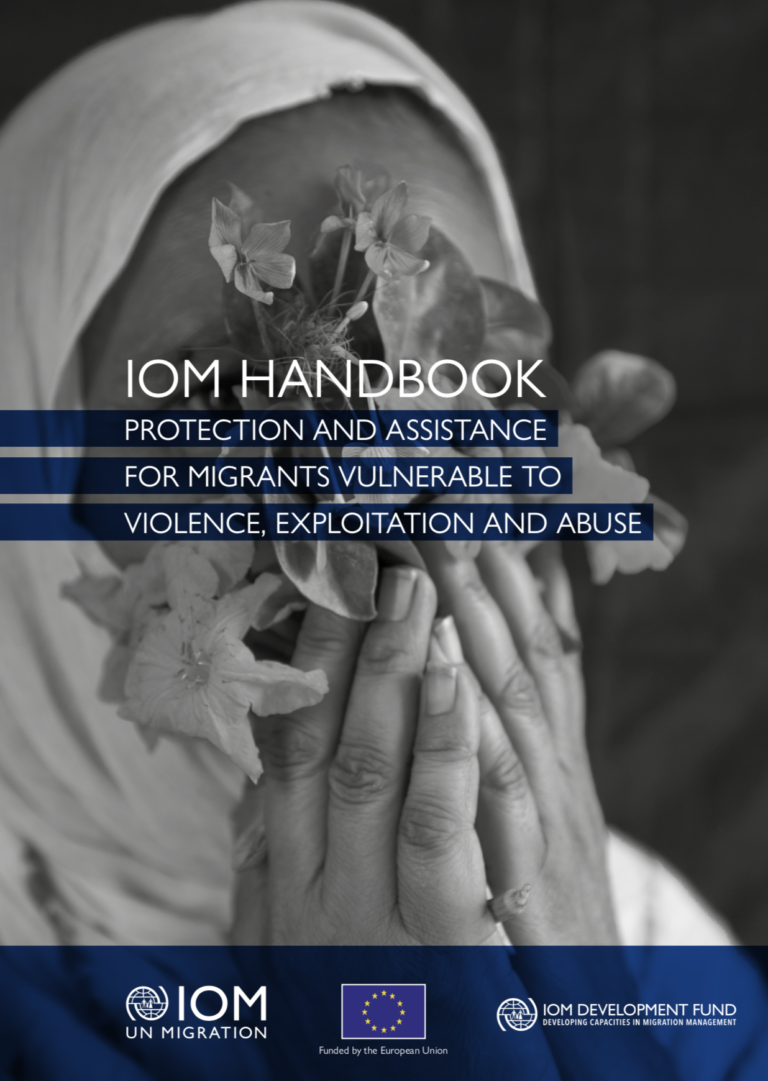This Handbook is intended for case managers, service providers, communities, development entities and States working to provide protection and assistance to migrants vulnerable to violence, exploitation and abuse, or to mitigate and reduce factors contributing to migrant vulnerability. The guidelines, practices and standards it describes can be adapted and applied to a range of situations, including crisis, emergency, humanitarian, transition, developing and developed contexts.
The Handbook provides practical, voluntary guidance enabling States, private sector entities, international organizations and civil society to protect and assist migrants vulnerable to violence, exploitation and abuse and to take action to mitigate and reduce migrant vulnerability. It aims at giving guidance as to how duty bearers under international and national law can better assist and protect individual rights holders.

